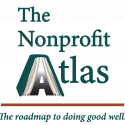The Nonprofit Sector Is At A Breaking Point; It's Time For A New Playbook

After nearly two decades in and around the nonprofit world, I’ve never seen the sector under this much strain. Nonprofits, already stretched thin, are facing one of their most difficult years yet. Following years of pandemic-related disruptions, economic instability, and social unrest, the traditional nonprofit model is buckling under the pressure. So far this year, roughly 20,000 nonprofit employees have lost their jobs—an alarming loss of talent and capacity at a time when communities need their services most.
This crisis extends beyond the nonprofit world. With nonprofits making up more than 10% of the U.S. workforce and filling critical gaps where government and business fall short, the health of this sector is essential to society’s well-being. Yet, outdated funding models and operating practices are no longer sustainable. To move forward, we need bold, coordinated action from funders, nonprofit leaders, businesses, and everyday donors.
Funders: Prioritize Flexibility Over Control
For years, many donors and foundations have limited their giving to specific programs or projects, hoping to maximize direct impact. But these restrictions often hinder nonprofits’ ability to adapt and innovate. Imagine investing in a tech startup but telling them they can’t pay their engineers—only buy equipment. Nonprofits face this same challenge when forced to stretch every dollar according to strict donor rules.
The fix is clear: provide unrestricted, multi-year funding. This kind of support gives nonprofit leaders the flexibility to invest where it’s most needed, allowing them to build stronger, more resilient organizations that can tackle challenges as they arise.
Nonprofit Leaders: End the “Overhead Myth”
Nonprofits themselves have helped perpetuate the false idea that administrative costs—or “overhead”—are a waste of donor money. For too long, they’ve promoted misleading claims like “100% of your donation goes directly to programs,” hiding the essential work that keeps the organization running.
The reality is that staff salaries, technology, and operational infrastructure are critical to delivering impact. Without them, burnout rises, turnover increases, and programs can’t grow. It’s time to redefine overhead as a necessary investment in a nonprofit’s ability to serve its mission—and for sector leaders to help shift this conversation.
Corporations: Support the Broader Nonprofit Ecosystem
Corporate giving has become more targeted and PR-focused, while many once-common support programs—like nonprofit software discounts, employee giving matches, and pro bono services—have quietly declined. This shift forces nonprofits to spend more time and money filling operational gaps.
Corporate leaders have an opportunity to restore these broad-based support systems that uplift the entire sector. Doing so doesn’t just benefit nonprofits—it also boosts employee engagement and strengthens company culture by aligning teams around meaningful social impact.
Individual Donors: Commit to Consistent Giving
Many individuals give in response to emergencies or during holiday fundraising drives. While appreciated, these donations create unpredictable income streams for nonprofits, making it hard to plan for the long term.
Recurring monthly donations, no matter how small, are one of the most effective ways individuals can help. Consistent support allows nonprofits to budget more confidently, retain staff, and build sustainable solutions rather than constantly scrambling to fill funding gaps.
The challenges nonprofits face today are daunting, but the path forward is clear. It’s not about inventing new solutions but adopting a new mindset—one built on trust, transparency, and long-term partnerships. If funders, nonprofit leaders, corporations, and donors can work together with this shared purpose, the nonprofit sector—and the communities it serves—can emerge stronger and more resilient than ever.
Source: Forbes
The Nonprofit Atlas connects the dots for any “do-gooders” to do the most good. We provide the roadmap to doing good well. We simplify the work of securing resources, relationships, and best practices that fuel a mission and realize a vision. See us in action with a FREE 30-minute consultation.
